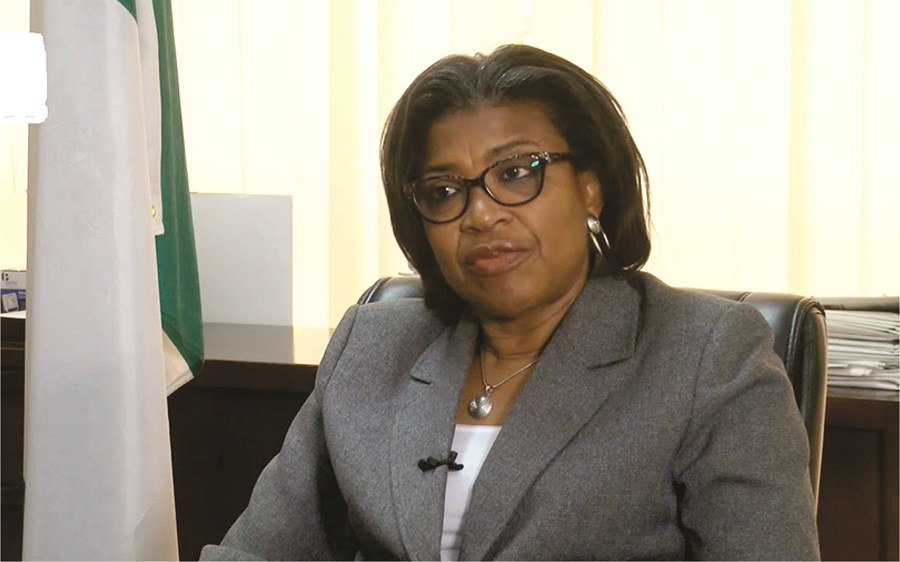The Debt Management Office has warned that it is not advisable to fund the government with borrowings, suggesting that borrowing should be for special purposes and urging the FG to do more about revenues as Nigeria’s growing debt stock rises due to new borrowings in the annual budgets and new borrowings approved under the Medium Term External Borrowing Plan.
This was disclosed in a statement by the director-general of the Debt Management Office, Ms. Patience Oniha, at the 3-Day Interactive Session on the 2022-2024 Medium Term Expenditure Framework (MTEF) and Fiscal Responsibility Paper (FSP) at the National Assembly (NASS) on September 1, 2021.
She revealed that Nigeria’s borrowing was high when the country went into recession, and it was based on the Economic Growth and Recovery Plan (EGRP) with the goal to bring the economy out of recession.
“Thereafter, the level of borrowings started coming down, though not significantly, but at least there was a tendency towards that. Then in 2020, when the Budget was revised because of the socio-economic implications of COVID-19, the borrowings shot up, by about double. So the new borrowings in the first 2020 budget was about N1.6 trillion, the revised budget about N4.6 trillion,” she said.
The DMO Chief added that in the Medium to Long-term, it is not advisable to fund the government with borrowings.
“In our presentation, we extracted the new borrowing from the budget and as the distinguished Chairman said, if we are continuing with that trajectory of N4.6 trillion last year, this year we incurred debt at the rate of N5.356 trillion so it is actually growing. Therefore, as Debt Managers, we are concerned with activities that will generate revenues that we can use to service the debt,” she stated.
She added that despite debt-to-GDP ratios of other countries being much higher than Nigeria’s. Nigeria was at 21.6% as of December 2020, while countries like the USA and UK have much higher ratios and, in some cases, more than 80%. But their Debt Service-to-Revenue ratios is 10%, at most 15%.
Further, Nigeria’s debt stock has been growing because of new borrowings in the annual budgets and new borrowings approved under the Medium Term External Borrowing Plan, both of which are duly approved as provided for in the DMO Act and the Fiscal Responsibility Act.
Recommendations by the DMO
“Our first recommendation is that we must do a lot more about revenues. What will increased revenues do for Nigeria? It will reduce the level of New Borrowings and the Debt Service-to-Revenue ratio. The other option is, to continue borrowing at our current levels of debt service which we do not recommend because the public debt could become unsustainable.
“Our second recommendation is that we should borrow only for priority projects and for revenue-generating projects.
“Our third recommendation is that, in addition to increasing revenues, we can achieve a reduction in new borrowings by actively using Public-Private Partnerships (PPP) arrangements to finance capital projects. The DMO is happy to note that there is now a tolling policy that was approved recently by FEC. This is one way to generate revenue,” Oniha said.
She warned that between January to June 2021, the Debt Service-to-Revenue was about 34%. However, the actual ratio is higher which is not good for any country. “When we say there is a revenue problem, there is a revenue problem,” she said, citing that the borrowing in the Medium-Term Expenditure Framework (MTEF) 2022-2024 is high and urging Nigeria to accelerate revenue generation significantly.
“If we want to borrow to develop the economy, let us keep a sharper focus on generating revenues so that we do not spend all our revenues on Debt Service or even borrow to service debt,” she urged.
In case you missed it
Recall Nairametrics reported last month that the Debt Management Office stated that remedies are needed to handle poor revenues and the country’s escalating amount of new borrowings.
Oniha warned that successive low revenues in the budget, which is further compounded by less than 100% realization, have reflected in high levels of borrowing in recent years. Expectedly, these borrowings have resulted in a high growth rate in the Debt Stock as well as Debt Service. She added that the trend is the same in the draft 2022-2024 MTEF.








